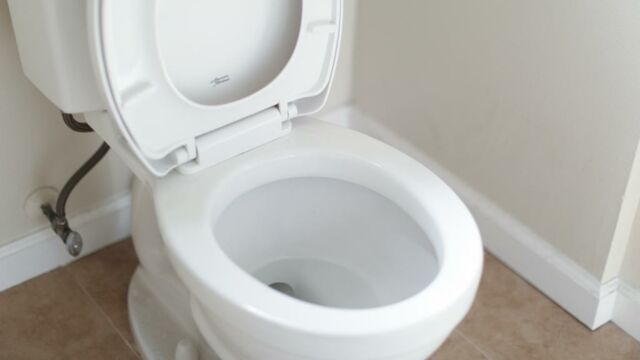When you’re using public toilets, there’s all sorts of germs running around from all types of people. The toilet seat, in particular, has garnered a pretty bad reputation for being an infection-spreader, which is not particularly surprising.
Discover our latest podcast
However, it is true that throughout the generations, and mostly because of concerned mothers, the impact a toilet seat can really have on your body has been slightly exaggerated—especially when it comes to sexually transmitted diseases.

STIs from a toilet seat?
First, you should know that an STI can be caused by bacteria, viruses, or parasites and each type of infection spreads in a different way.
According to experts at Winchester Hospital, the chances of catching a bacterial infection like chlamydia, gonorrhoea, and syphilis are almost zero. This is because bacteria cannot survive outside the mucous membrane that they reside in. You also have very low likelihood of catching a viral infection, like the human papillomavirus (HPV), herpes, and HIV from a toilet seat since most of these viruses spread through skin-to-skin contact, oral or vaginal sex, or sharing of needles.
Read more:
⋙ Sexual health: Four unfamiliar STDs you need to know about
⋙ Chronic UTI: The ‘multi drug-resistant’ infection that has been ruining lives
⋙ Infections are not the only cause of vaginal smells
Parasitic STIs
If you catch anything while sitting on a public toilet, it’s probably going to be a parasitic STI—however, the conditions have to be just right.
The National Women’s Health Information Center states that it is possible to catch trichomoniasis, an infection caused by a parasite called trichomonas vaginalis, only if your genitals come in direct contact with it while it is still alive on a damp toilet seat. This is also a very rare occurrence, given that toilet seats don’t usually provide parasites with the ideal environment to breed.

There is also a common worry that pubic lice can spread when you share a toilet with a contaminated person, but experts at Cleveland Clinic have explained that:
You most likely cannot get crabs by sharing a toilet seat with someone who has them. The lice can’t live very long when they’re away from a human body. And their legs can’t hold onto a smooth surface like a toilet seat.
If you're still not convinced but really need to relieve yourself in a public toilet, just make sure to give it a good wipe down before you take a seat.















